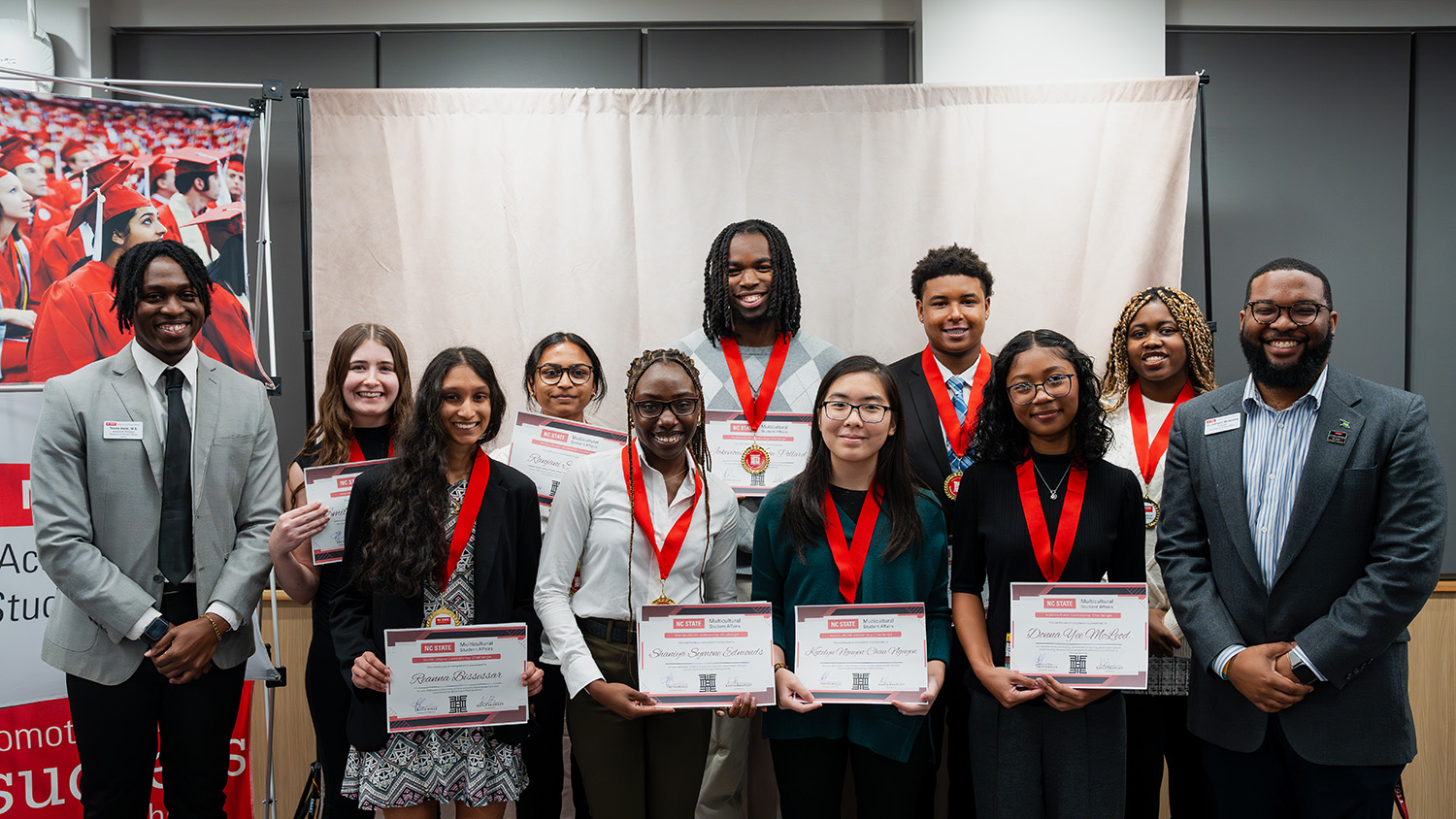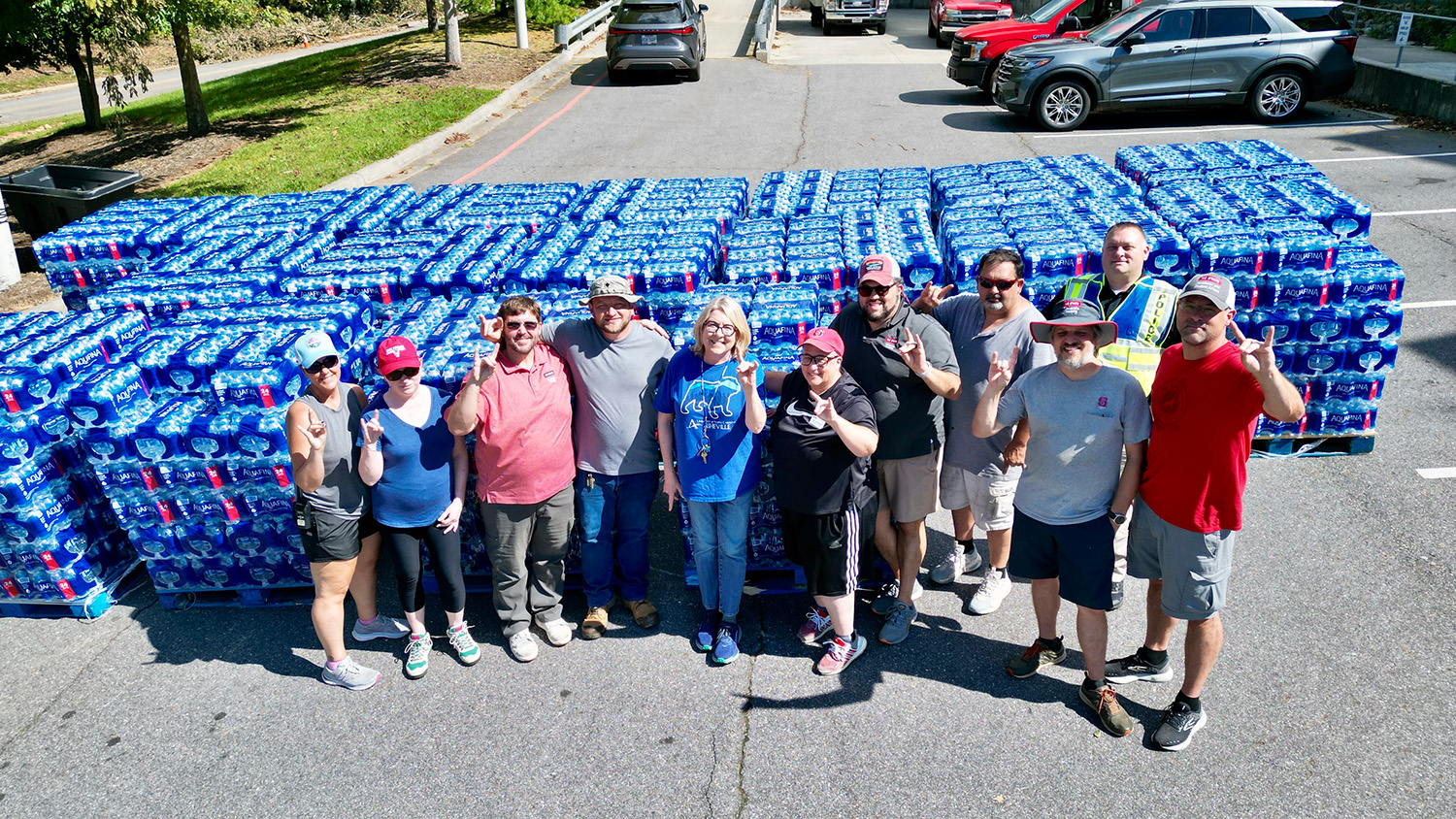Supporting Students In Recovery
Prevention Services' Collegiate Recovery Community (CRC), as well as the registered student organization Pack Recovery, provide resources and support to NC State students in recovery.

While 4% might appear like a modest amount at first, it represents a significant and often overlooked reality on large college campuses like NC State – hundreds of students grappling with the challenges of recovery.
It’s estimated that nationally, 4% of college students identify as being in recovery from substance use or other problematic/concerning behaviors. Organizations such as the Collegiate Recovery Community (CRC), under the umbrella of NC State Prevention Services’ Alcohol and Other Drugs unit, provide a vital resource for these student populations.
Students don’t have to choose between their recovery and their educational experience.
Pack Recovery is a registered student organization, supported by staff, that seeks to connect students who identify as in recovery, foster their success and provide the opportunity for students to have an alternative college experience through this network.
“We try to support recovery not just at State but in the broader community as well, and just draw attention to the fact that recovery is alive and exists, and students who are in college can flourish and be in recovery at the same time, so students don’t have to choose between their recovery and their educational experience,” said Laurie Capps Bolster, Prevention Services’ alcohol, other drug and recovery coordinator.
National Recovery Month
September is National Recovery Month, and the Collegiate Recovery Community has a variety of events planned for the rest of the month to support the recovery community and promote healthy behaviors.
On Sept. 19 from 10-11:30 a.m., the CRC will host a Recovery Awareness Training for participants to learn about alcohol and other drug trends, campus recovery and appropriate resources for students in the recovery process.
As part of Healthy Campus Week, the alcohol and other drugs unit will hold “Watch Your BAC,” an event where staff from Prevention Services’ Alcohol and Other Drug Prevention Education group will demonstrate drink pouring with lemonade to teach students what constitutes a standardized drink and how to better understand their alcohol consumption.
Recovery month will also feature several events around the creation and distribution of Narcan kits, a life-saving medication that can treat an overdose from opioids in emergency situations.
The CRC hosts events such as weekly support meetings for NC State students, prosocial events, volunteer opportunities and overnight retreats with other collegiate recovery programs in addition to the weekly meetings and programming offered by the student organization, Pack Recovery.
“I think at the beginning of the school year, that’s when people are looking for places to get involved, and looking for clubs and organizations,” said Sam Valmassoi, a graduate student studying structural engineering and Pack Recovery’s club president. “I think the more you can do to let people know that there is this resource that’s available, it’s a great thing.”
A Vital Community Resource
Throughout the school year, the CRC holds weekly meetings on Tuesdays from 5-6 p.m. Students interested in attending these meetings and learning more about the organization should email Bolster (lgcapps@ncsu.edu).
That community aspect is what’s really important and why it works.
The CRC also holds a bimonthly SMART Recovery Drop-In space to help students learn about self management and recovery tools.
“If your goal is to avoid substances, you can connect with other people that have a similar goal,” Valmassoi said. “I think that’s a very valuable thing. That community aspect is what’s really important and why it works.”
It’s no secret that drinking and substance culture can be a significant part of collegiate social life, and the pictured vision of the “typical” college experience often includes drinking at parties.
Recovery means that people have choices.
The goal of Pack Recovery is to present the idea that there are other college experiences out there, and that students in recovery can find and enjoy their own college experience.
“I think for me, recovery means that people have choices,” Bolster said. “No matter where someone is along that journey of change, they have the tools, support and advocacy that they need to be able to make (or sustain) a change if that’s something that they want to do. I think making an active decision not to use substances anymore or even to try to be healthier can be challenging, because the environment can be inherently hostile to recovery.”
“It means everything for me to be able to support this cause. I think this student population is trying to live authentically and radically. Seeing them not only advocate for themselves in this type of environment but supporting each other is very rewarding and I couldn’t imagine working in any other field.”
Ben Beechhold, a third-year student studying visual arts, said that, upon transferring to NC State at the start of the 2023-24 school year, he was looking to form connections with other students, and especially sober connections.
Pack Recovery gave him a chance to find that community.
“It’s been a home on campus,”Beechhold said. “It’s always been a place for me where I can meet people that are going through the same life path that I’m going through. Joining the community immediately showed me that I’m not alone and there are so many other people out here that are dealing with the same things.”
A Chance to Support Others
Valmassoi explained that he is in his late 30s, and, in his first time as a college student, ended up leaving school as he battled alcoholism.
Going back to college was a key piece of his recovery, and joining Pack Recovery has allowed him to help students on a similar path.
“When I was in college the first time, this kind of group didn’t exist, and I was the kind of person that needed it,” Valmassoi said. “So I feel drawn to it because I want to try to help other people who are going through similar things, and use my experience to help out.”
For the students in Pack Recovery who have come to a place on their recovery journey where they want to share their experience with others, it’s a chance for those experiences to become a teaching tool.
“That’s my favorite part,” Beechhold said. “There was a time in my life that I thought that I was not serviceable to anyone else, and I thought that I couldn’t help. I now get to use my experience and the struggles that I went through. They don’t have to just be struggles anymore — they get to be learning lessons for other people. I think that’s what helped me get through it early on, people picking me up and showing me where I needed to be. Now I get to show that same love. It’s a great feeling.”
The hope for the students and staff in the CRC is to keep helping more students find their road to recovery, give them a sense of community and show them that their recovery does not have to hinder their college experience.
“My favorite part of my job is that I get to help NC State students figure out how to keep themselves healthy,” Bolster said. “That is very empowering.”


